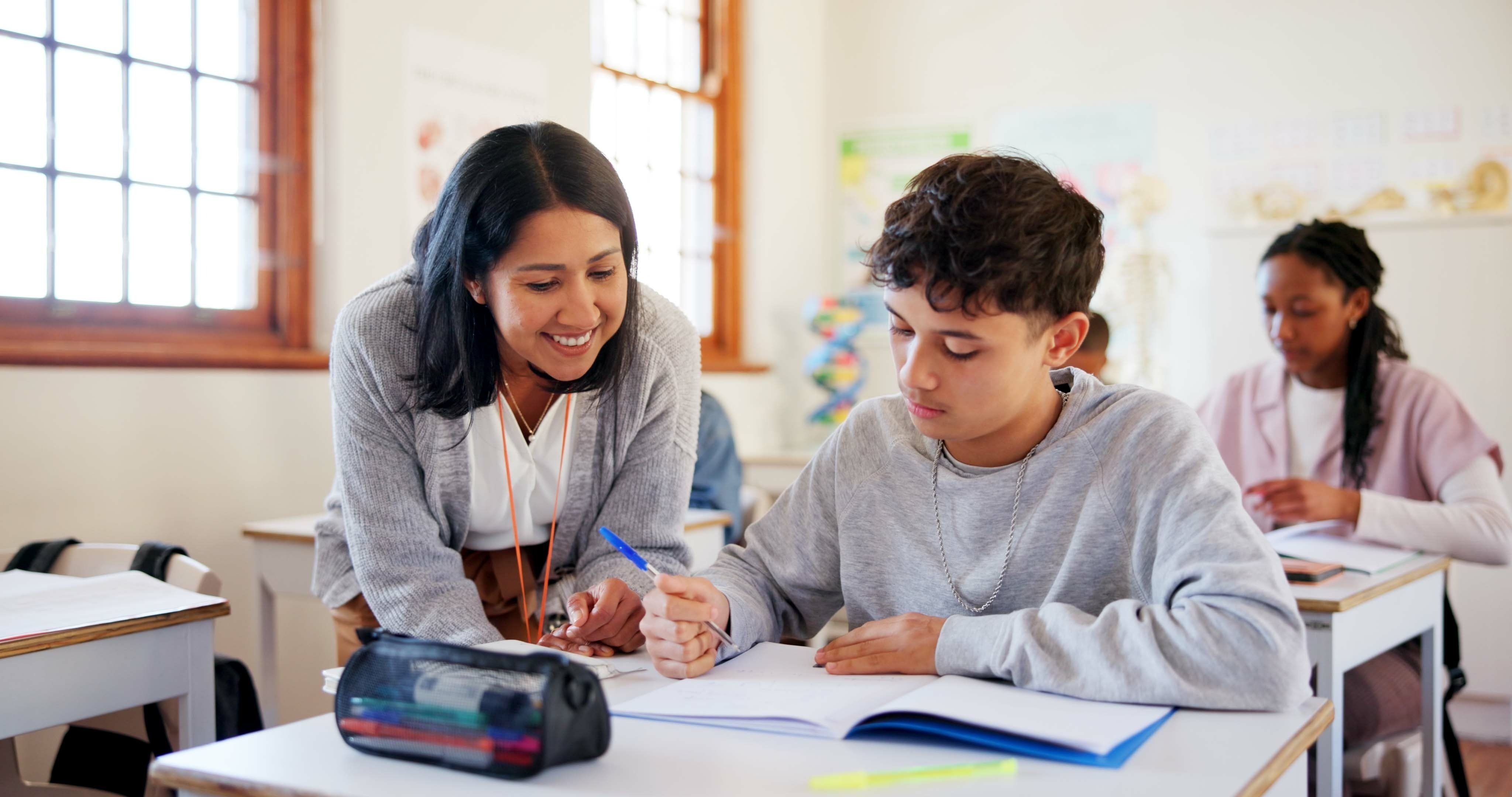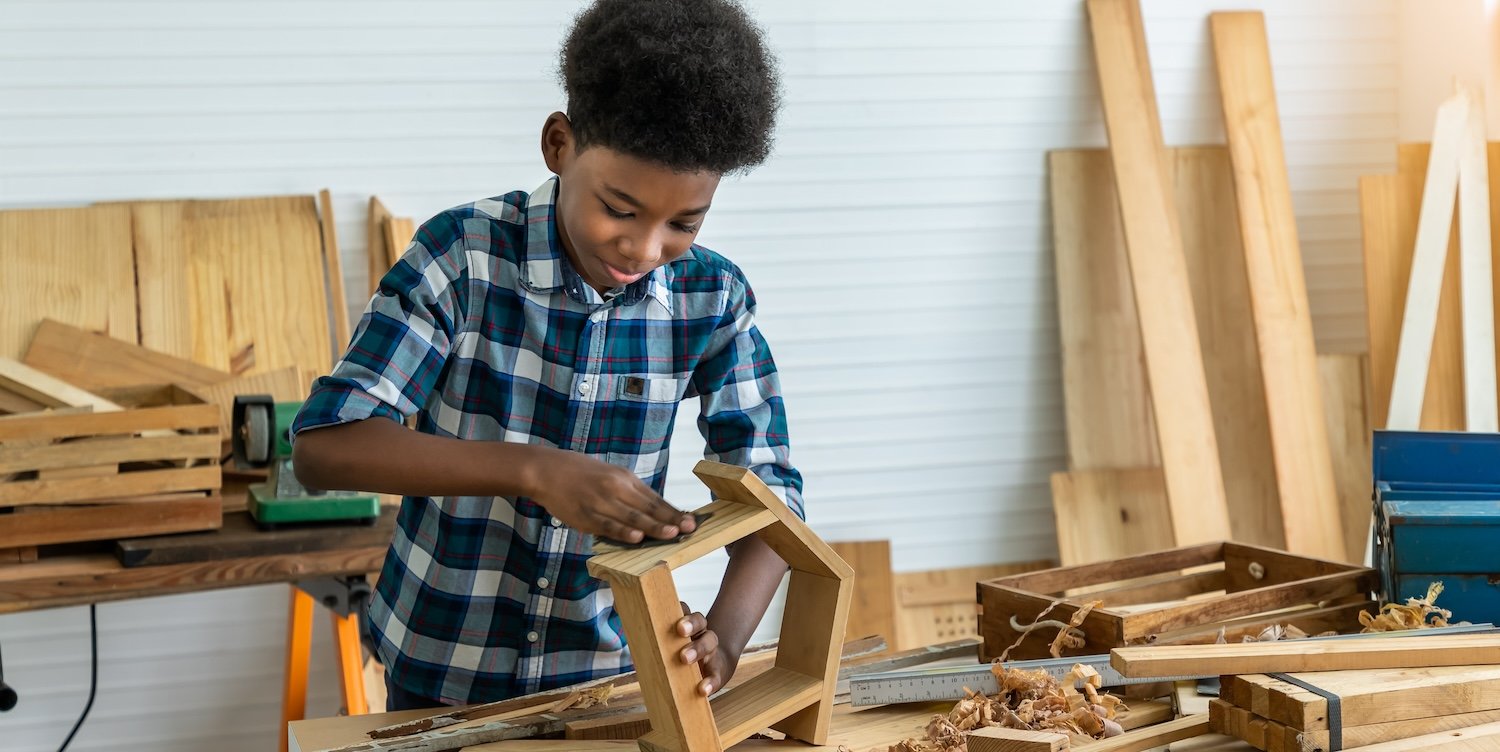3 Ways to Embrace Kindness
.png)
Life is hard. And people can be unkind. So much of our news and media portray less than stellar moments of how people treat each other. So, how does one learn to be kind? How can we foster kindness in our children? Are there skills we can strengthen?
.png?width=830&name=%E2%80%9CWe%20live%20in%20the%20shelter%20of%20one%20another.%E2%80%9D%20-%20An%20Irish%20Proverb%20(1200%20%C3%97%20100%20px).png)
Unfortunately, there is not a manual we can all read with magical results guaranteed, but there are a few ways to foster and encourage kindness. Here is a short but mighty list of my top three.
1. Be Kind to Yourself
It sounds trite, but I often talk about being kind to oneself when counseling the students who are challenged by perfectionism, anxiety, and certain social situations. It seems simple, but it is quite challenging for most people. Our personal narratives, what we tell ourselves internally in the micro-moments of our day, form much of our emotions and, in turn, propel how we behave with others. If our narratives are ones that inhibit openness of mind and heart, place judgment, and are quick to dismiss, then we are starting from a callous place, and the effect will reveal itself throughout our day with interactions reflecting that state. Like a muscle that needs to be strengthened, our inner voice is one that needs to be conditioned and trained to soften and validate without judgment. This builds a foundation of reality peppered with thoughtfulness and care.
Self-kindness can be developing a more thoughtful personal narrative, taking time to do activities which bring us joy, or resting when we need to. Stillness in mind and body is important and necessary so that we can find the space for ourselves first. Then, coming from a place of ease and calm ourselves, we are better able to offer that same outlook and manner to others. Boys have a harder time with this concept and sometimes find themselves fighting against practicing mindfulness because they think it is only about quiet, focus, and concentration. In fact, mindfulness can take on many facets including a hike in the woods, eating, yoga, breath work, and exercising. I often tell the boys a wandering mind is actually expected in a mindfulness practice. When we offer ourselves the permission to recognize thoughts that appear and liken them to fluid waves coming in and out of our consciousness, we actually strengthen our mindfulness practice. Mindfulness can be individually practiced, but it can also be a family experience incorporated into any given day through games, activities, or anything that encourages us to live in the present moment. Most importantly it is a practice rooted in kindness. By offering kindness to ourselves first, we can better offer it to others and authentically model it for our kids.
2. Build Empathy
Through curiosity and a sense of wonder about those who are different from us, we can more readily create meaningful personal connections and weave together a sense of community. A greater understanding and celebration of our differences rather than overgeneralizing and categorizing cultures, people, and ideas leads to a larger lens of perspective. This, in turn, leads to greater empathy. We’re experiencing an empathy shortage, but we can fix it together. This is the title of a TEDTalk presented by Jamil Zaki, Professor of Psychology at Stanford University; Director, Stanford Social Neuroscience Lab; and author of The War for Kindness: Building Empathy in a Fractured World. In both, he offers hope for us all and a new take on what we have traditionally thought of as empathy. Rather than looking at empathy as a trait one is either born with or not, Zaki and his colleagues, who have studied empathy for fifteen years, believe empathy to be both a trait and a skill that we can “choose to practice and grow.” This choice of “curiosity over indifference” is not easy, and it may take time, but by choosing to reframe what could be sweeping, general statements to questions of genuine inquiry from a place of respect and regard, we can show our care for and kindness to others. Dr. Michele Borba is the author of UnSelfie: Why Empathetic Kids Succeed in Our All-About-Me World. She offers an empathy-building framework to help guide parents of children at all stages of development. One of Borba’s suggestions is to use literature. “The right book can stir a child’s empathy better than any lesson or lecture ever could. And the right book matched with the right child can be the gateway to opening his heart to humanity.” (Unselfie). Children can tap into various works of literature and movies to learn more about different cultures, explore social dilemmas and expand their overall perspective outside of their own mind and world. Community service and meaningful opportunities to intentionally give back to a chosen cause are also compelling ways to encourage and model empathy. Phyllis Fagell, LCPC, and author of Middle School Matters says, “Meaningful volunteer engagement can widen children’s worldview, teach them gratitude, and build their awareness of and sensitivity to others’ struggles. It’s a powerful way for kids to see everyone has a story.” (Middle School Matters).
3. Look and Listen for Opportunities
Every human encounter is another opportunity to connect, affirm, listen, communicate, and be kind. The more we actively look and listen to others who might need our kindness, the more we will find ourselves offering it. Students often find themselves in my counseling office because of a misstep with a friend or peer – sometimes it involves misperception, sometimes it involves miscommunication, and sometimes it involves disrespect, but it almost always involves hurt feelings. Emotions ranging from loneliness, sadness, discouragement, and alienation can certainly be understood by us all. These are universal feelings that we can identify with and recognize because we have all personally been there as children and as adults: the last one chosen for a game, the one excluded from the party, the person no one is talking to at recess. We know just how impactful someone’s kindness was to us when we needed it. Most of us have also been witness to these moments of disconnect and unpleasantness happening to someone else. These are the moments that are our greatest opportunities, and a great place to start being kind when someone needs it most. Don’t overlook them – step in and be kind.
But there are so many missed opportunities to look and listen for at school, at home, in our neighborhoods, and beyond that aren’t as obvious. We cannot see what lies behind each person and how much a kind act might make the difference. Commit to making time as a family to be purposeful and capitalize on these missed opportunities. Write a thank-you note each Sunday to someone, call a family member or friend just to say hello, and set aside time each day to offer your help to a teacher or coach. Over time, these habits will strengthen. Before long, you will be seeing and hearing opportunities without looking for them and the practice of being kind will continue to grow in your family’s daily life.
We all know the positive effect of someone’s kindness when it was shown to us exactly when we needed it: the one smile, listening ear, kind gesture, or handwritten note that turned our entire day around. Be kind to yourself, give yourself grace, and rest when you need to. Be curious, and encourage awe and wonder in your children. Foster connectedness and inclusion over apathy. Finally, look and listen for moments when you and your kids can be kind. Be purposeful with words and actions. We are in this together!
At the end of the day, the support, care, and kindness we show ourselves and each other is all we have.

Mrs. Leslie A. Muha joined the faculty in 2008 and is the current Jr. K- Grade 8 Professional School Counselor. She received her B.S. degree in education from Kent State University, her M.A. degree in reading from Eastern Michigan University, and her M.Ed. degree in School Counseling from John Carroll University. She is the endowed F.J. O’Neill Chairholder in Guidance and Counseling, for her work in assuring that the quality of guidance is maintained at the highest level.


%202.jpeg)
